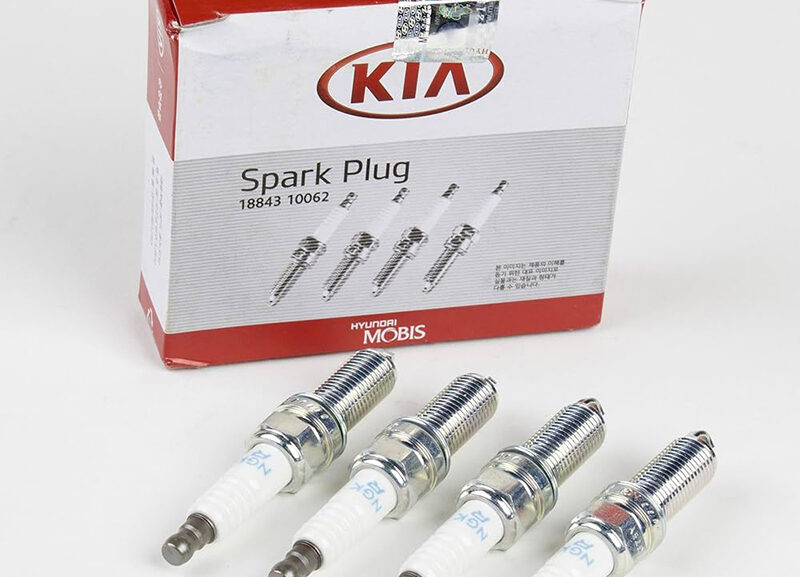Spark plugs are an essential component of any gasoline engine, playing a crucial role in the ignition process. Whether you drive a small hatchback or a high-performance sports car, understanding how spark plugs work can help you maintain engine efficiency and performance. In this blog, we’ll break down the workings of spark plugs, the signs of a bad spark plug, and the importance of timely spark plug replacement.
What is a Spark Plug?
A spark plug is a small yet powerful device that ignites the air-fuel mixture in an engine’s combustion chamber. This ignition creates an explosion that drives the engine’s pistons, ultimately powering the vehicle. Without properly functioning spark plugs, an engine can suffer from poor performance, reduced fuel efficiency, and increased emissions.
How Does a Spark Plug Work?
The spark plug operates through a simple but effective process:
- Voltage Supply: The ignition system sends high voltage through the spark plug.
- Spark Formation: The voltage jumps across the spark plug gap, creating a spark.
- Combustion Ignition: The spark ignites the compressed air-fuel mixture inside the cylinder.
- Power Generation: The explosion pushes the piston down, generating power to turn the engine.
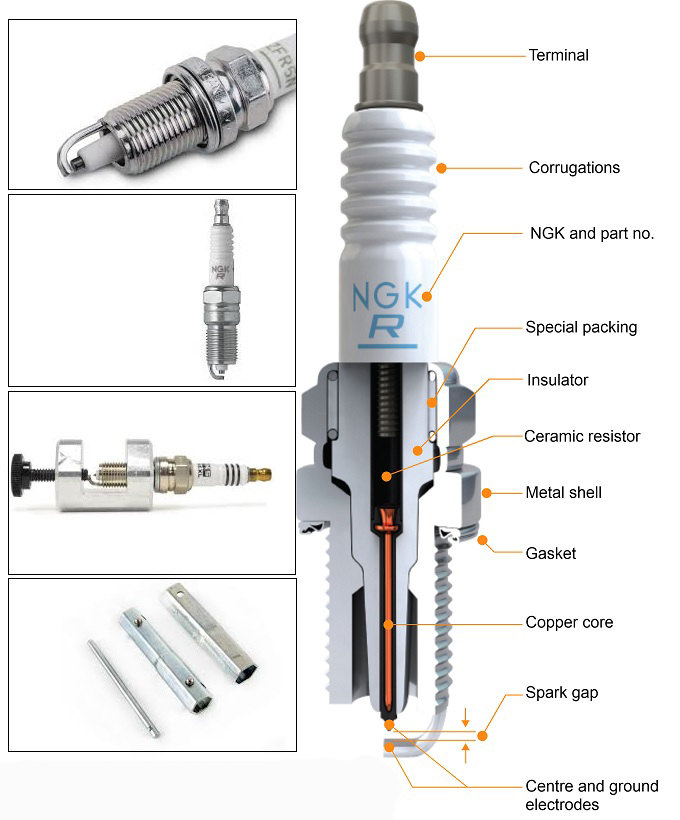 Types of Spark Plugs
Types of Spark Plugs
There are various types of spark plugs available, each designed for specific engine needs:
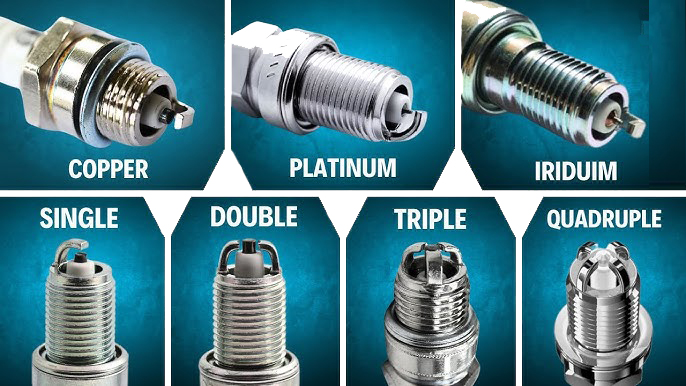 Copper Spark Plugs – Affordable but have a shorter lifespan.
Copper Spark Plugs – Affordable but have a shorter lifespan.- Platinum Spark Plugs – Offer better durability and efficiency.
- Iridium Spark Plugs – A high-performance option with extended longevity and better fuel efficiency. Learn more about car performance upgrades here.
Common Spark Plug Problems
Signs of a Bad Spark Plug
A failing spark plug can cause multiple engine issues, including:
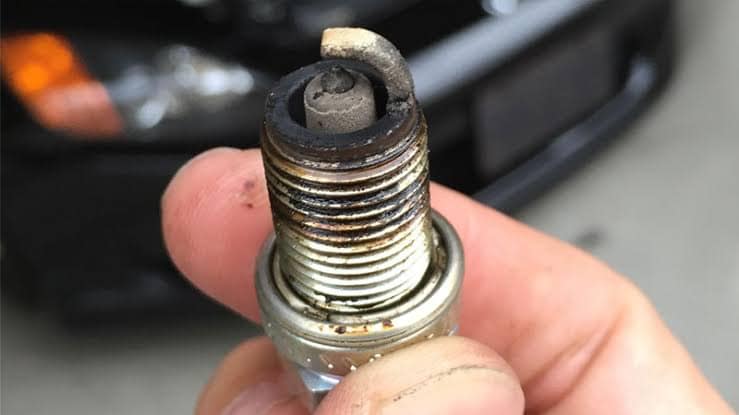 Rough Idling: An irregular or shaky engine idle.
Rough Idling: An irregular or shaky engine idle.- Difficulty Starting: A weak or failing spark can make ignition difficult.
- Engine Misfires: The engine might misfire, reducing power and efficiency.
- Poor Fuel Economy: A faulty spark plug can lead to increased fuel consumption.
- Check Engine Light On: Modern vehicles may display a warning light when a spark plug is failing.
If your engine is experiencing these issues, book a service appointment now.
Oil on Spark Plug: What Does It Mean?
Finding oil on a spark plug can indicate several underlying problems:
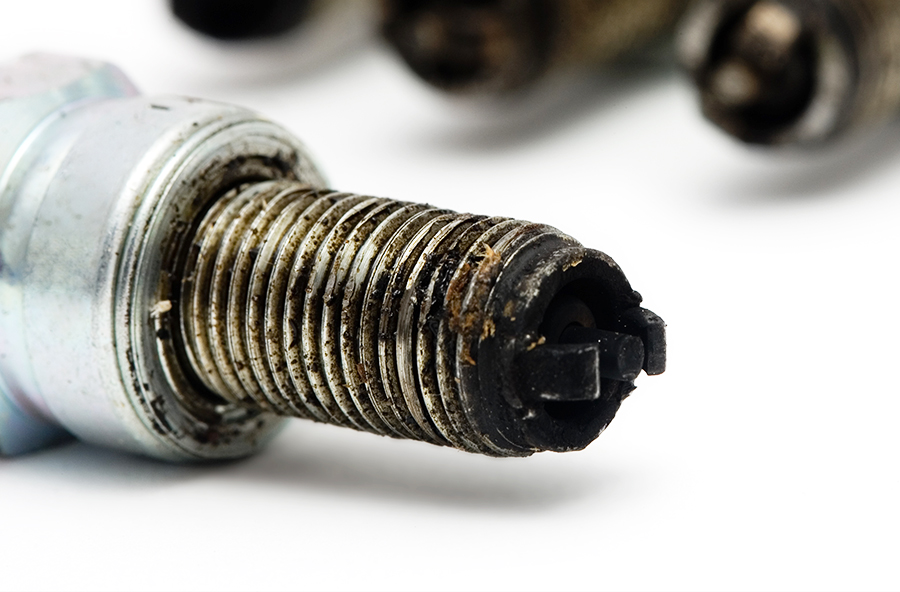 Worn-out piston rings causing oil leakage into the combustion chamber.
Worn-out piston rings causing oil leakage into the combustion chamber.- Leaky valve cover gasket allowing oil to seep into the spark plug well.
- Overfilled engine oil leading to oil buildup in the spark plug socket.
Ignoring this issue can lead to serious engine damage, so it’s crucial to inspect and replace affected components as needed. For inquiries about vehicle maintenance, contact us here.
When to Replace Your Spark Plugs
Regular spark plug replacement is vital for maintaining optimal engine performance. The recommended replacement interval varies based on the type of spark plug used:
- Copper Spark Plugs: Replace every 20,000-30,000 miles.
- Platinum Spark Plugs: Replace every 50,000-60,000 miles.
- Iridium Spark Plugs: Replace every 100,000 miles.
Neglecting spark plug replacement can lead to engine inefficiencies, reduced acceleration, and even engine knocking. Check the latest service price list for spark plug replacements.
How to Replace a Spark Plug
If you’re a DIY enthusiast, here’s how you can perform a basic spark plug replacement:
- Gather Tools: You’ll need a spark plug socket, ratchet wrench, and gap gauge.
- Locate Spark Plugs: Find the spark plug wires or ignition coils and remove them carefully.
- Remove Old Spark Plugs: Use the spark plug socket to unscrew and remove the old spark plugs.
- Check & Adjust Spark Plug Gap: Ensure the new spark plug gap is set correctly.
- Install New Spark Plugs: Screw in the new spark plugs and tighten them properly.
- Reconnect Ignition Coils or Wires: Ensure everything is securely in place before starting the engine.
If you’re unsure, it’s best to consult a professional. Schedule a service appointment today.
Final Thoughts
Spark plugs may be small, but they have a huge impact on engine performance. Regular inspections and timely replacements can prevent engine issues and improve fuel efficiency. Whether you need to diagnose a bad spark plug, fix oil on a spark plug, or simply upgrade to an iridium spark plug for better longevity, keeping your ignition system in top shape is essential.
For expert guidance on car maintenance and protection, reach out to us now!

